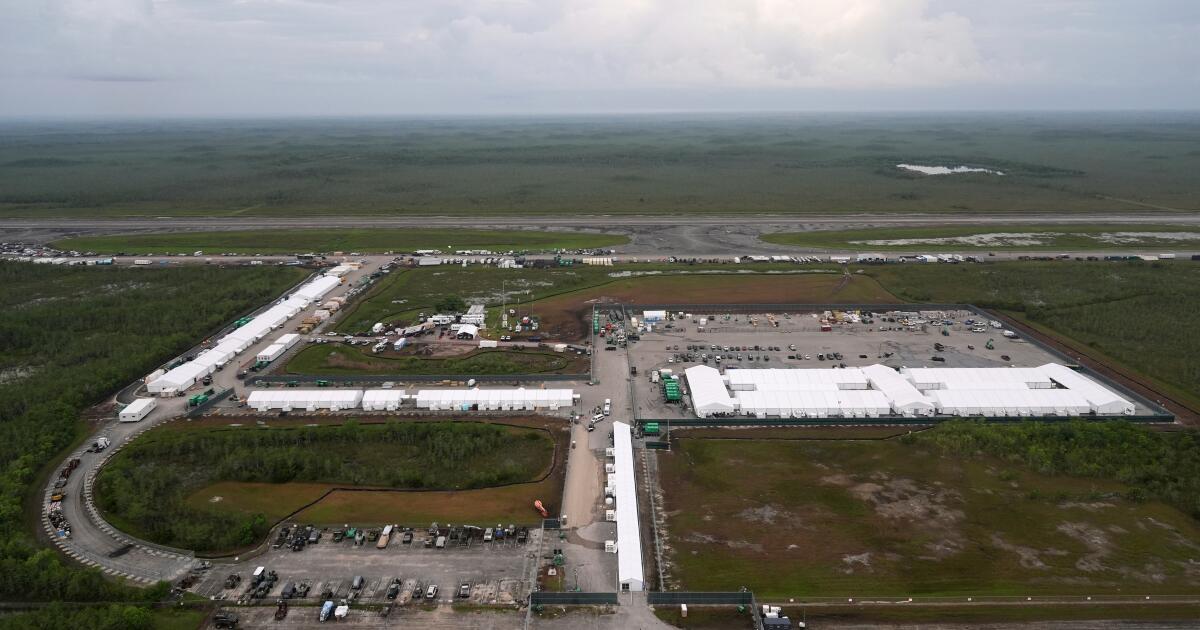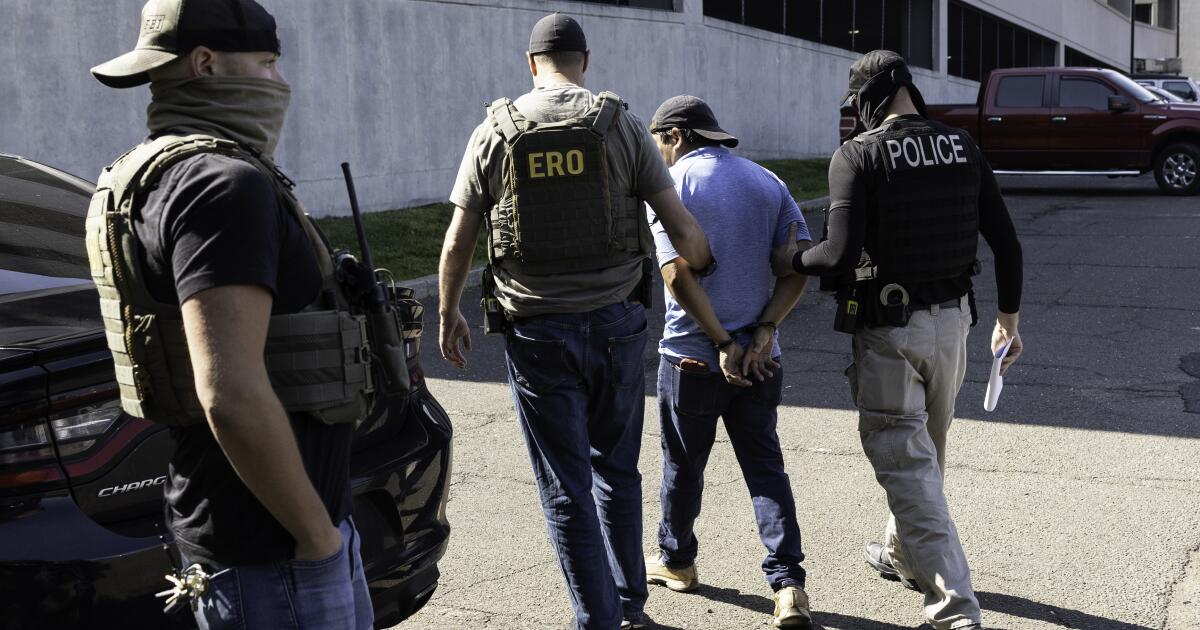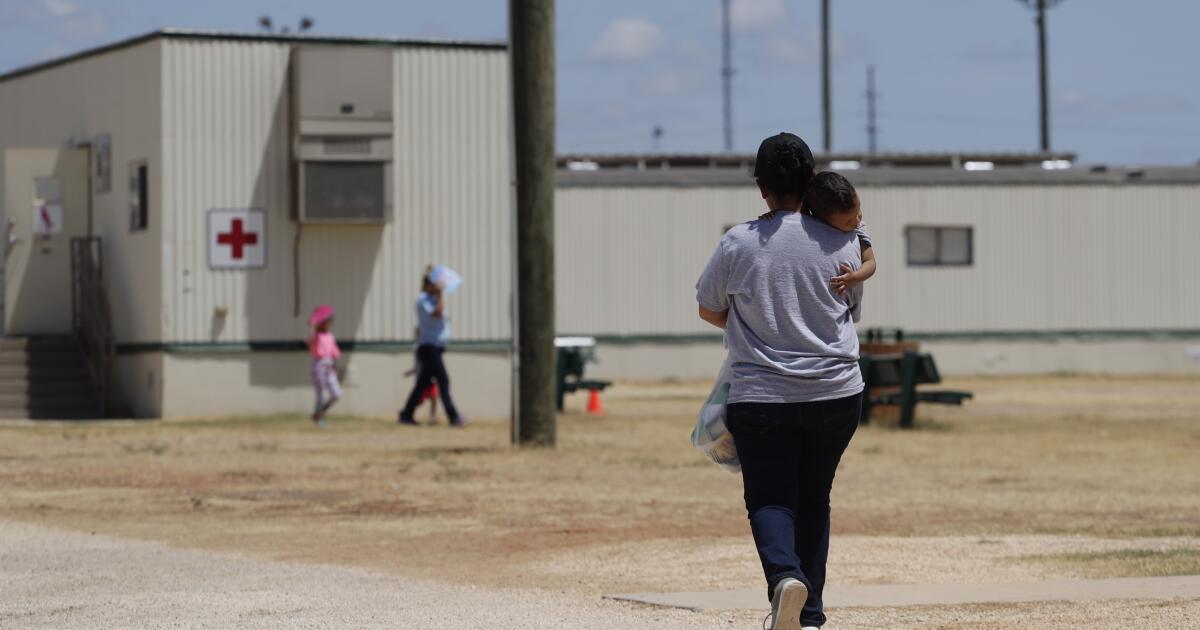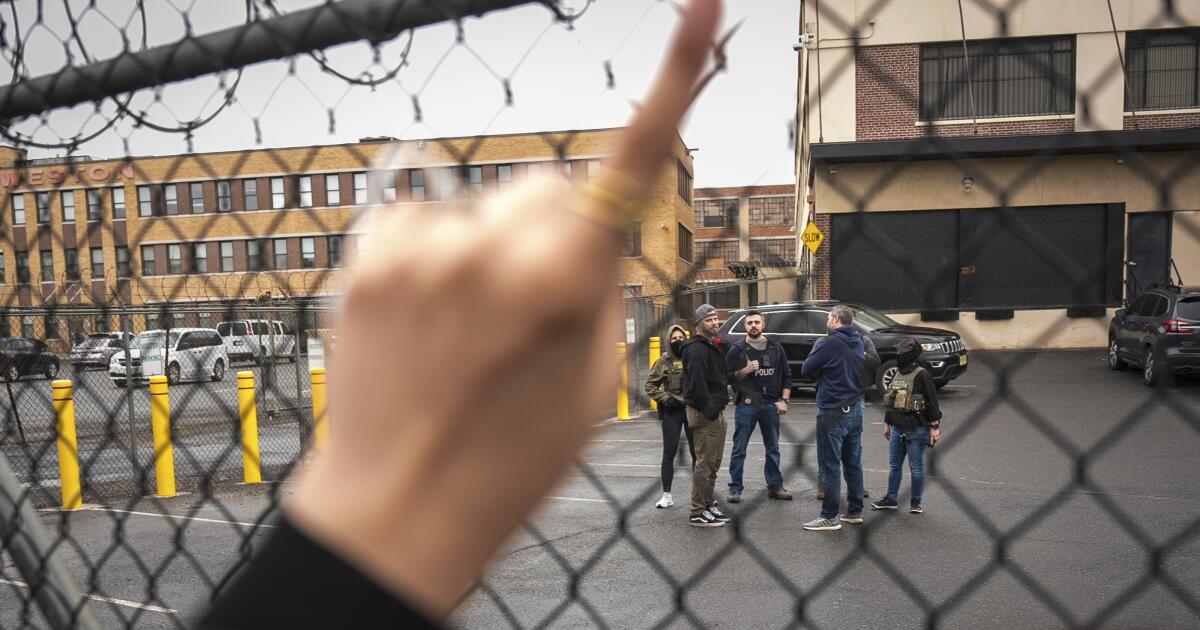South Korean workers detained in immigration raid leave Atlanta and head home
SEOUL, South Korea — South Korea’s president said Thursday that Korean companies probably will hesitate to make further investments in the United States unless Washington improves its visa system for their employees, as U.S. authorities released hundreds of workers who were detained at a Georgia factory site last week.
In a news conference marking 100 days in office, Lee Jae Myung called for improvements in the U.S. visa system as he spoke about the Sept. 4 immigration raid that resulted in the arrest of more than 300 South Korean workers at a battery factory under construction at Hyundai’s sprawling auto plant west of Savannah.
South Korea’s Foreign Ministry later confirmed that U.S. authorities had released the 330 detainees — 316 of them South Koreans — and that they were being transported by buses to Atlanta’s Hartsfield-Jackson airport, where they will board a charter flight scheduled to arrive in South Korea on Friday afternoon. The group also includes 10 Chinese nationals, three Japanese nationals and one Indonesian.
The massive roundup and U.S. authorities’ release of video showing some workers being chained and taken away sparked widespread anger and a sense of betrayal in South Korea. The raid came less than two weeks after a summit between President Trump and Lee, and just weeks after the countries reached a July agreement that spared South Korea from the Trump administration’s highest tariffs — but only after Seoul pledged $350 billion in new U.S. investments, against the backdrop of a decaying job market at home.
Lawmakers from both Lee’s Liberal Democratic Party and the conservative opposition decried the detentions as outrageous and heavy-handed, while South Korea’s biggest newspaper compared the raid to a “rabbit hunt” executed by U.S. immigration authorities in a zeal to meet an alleged White House goal of 3,000 arrests a day.
During the news conference, Lee said South Korean and U.S. officials are discussing a possible improvement to the U.S. visa system, adding that under the current system South Korean companies “can’t help hesitating a lot” about making direct investments in the U.S.
Lee: ‘It’s not like these are long-term workers’
U.S. authorities said some of the detained workers had illegally crossed the U.S. border, while others entered legally but had expired visas or entered on visa waivers that prohibited them from working.
But South Korean officials expressed frustration that Washington has yet to act on Seoul’s years-long demand to ensure a visa system to accommodate skilled Korean workers, though it has been pressing South Korea to expand U.S. industrial investments.
South Korean companies have been mostly relying on short-term visitor visas or Electronic System for Travel Authorization to send workers who are needed to launch manufacturing sites and handle other setup tasks, a practice that had been largely tolerated for years.
Lee said that whether Washington establishes a visa system allowing South Korean companies to send skilled workers to industrial sites will have a “major impact” on future South Korean investments in America.
“It’s not like these are long-term workers. When you build a factory or install equipment at a factory, you need technicians, but the United States doesn’t have that workforce and yet they won’t issue visas to let our people stay and do the work,” he said.
“If that’s not possible, then establishing a local factory in the United States will either come with severe disadvantages or become very difficult for our companies. They will wonder whether they should even do it,” Lee added.
Lee said the raid showed a “cultural difference” between the two countries in how they handle immigration issues.
“In South Korea, we see Americans coming on tourist visas to teach English at private cram schools — they do it all the time, and we don’t think much of it, it’s just something you accept,” Lee said.
“But the United States clearly doesn’t see things that way. On top of that, U.S. immigration authorities pledge to strictly forbid illegal immigration and employment and carry out deportations in various aggressive ways, and our people happened to be caught in one of those cases,” he added.
South Korea, U.S. agree on working group to settle visa issues
After a meeting with U.S. Secretary of State Marco Rubio in Washington, South Korean Foreign Minister Cho Hyun said Wednesday that U.S. officials have agreed to allow the workers detained in Georgia to later return to finish their work at the site. He added that the countries agreed to set up a joint working group for discussions on creating a new visa category to make it easier for South Korean companies to send their staff to work in the United States.
Before leaving for the U.S. on Monday, Cho said more South Korean workers in the U.S. could be vulnerable to future crackdowns if the visa issue isn’t resolved, but said Seoul does not yet have an estimate of how many might be at risk.
The State Department announced Thursday that Deputy Secretary of State Christopher Landau would visit Seoul this weekend as part of a three-nation Asia-Pacific trip that will also include Papua New Guinea and the Marshall Islands.
The Georgia battery plant is one of more than 20 major industrial sites that South Korean companies are building in the United States. They include other battery factories in Georgia and several other states, a semiconductor plant in Texas and a shipbuilding project in Philadelphia, a sector that Trump has frequently highlighted in relation to South Korea.
Min Jeonghun, a professor at South Korea’s National Diplomatic Academy, said it’s chiefly up to the United States to resolve the issue, either through legislation or by taking administrative steps to expand short-term work visas for training purposes.
Without an update in U.S. visa policies, Min said, “Korean companies will no longer be able to send their workers to the United States, causing inevitable delays in the expansion of facilities and other production activities, and the harm will boomerang back to the U.S. economy.”
Hyung-jin and Tong-Hyung write for the Associated Press. Tong-Hyung reported from Seoul.





